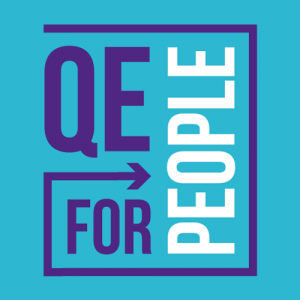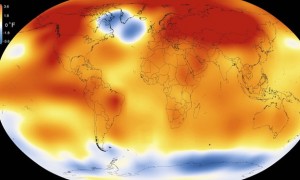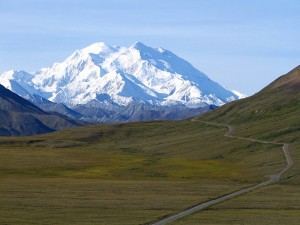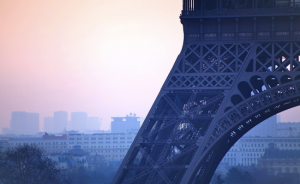 We had a European friend over for dinner a couple of nights ago, a visiting scientist and numbers guy who has been here for several months and will soon return to the small Balkan nation where he lives. Beyond our nice dinner and the pessimism about global climate change he shared with aperitifs, there was other food for thought.
We had a European friend over for dinner a couple of nights ago, a visiting scientist and numbers guy who has been here for several months and will soon return to the small Balkan nation where he lives. Beyond our nice dinner and the pessimism about global climate change he shared with aperitifs, there was other food for thought.
He was puzzled, for example, by the complete lack of public transportation options, not just locally, but between our small university town and the international airport one hour away. No way to get there absent private car or a van service, and I shared the feeling of travesty as he shook his head in disbelief.
And the thing is, a great deal of planning is required for us to find ourselves in as such a situation. One has to systematically and persistently downgrade the notion of public commonwealth in every sense to make people feel that public transportation options would be some kind of waste – or, even better worse, an infringement on their liberty. A threat, not just to be discouraged but to be blocked at the earliest sign of gaining even the smallest measure of acceptance. It takes a lot of work, but it CAN pay off: we have no trains.
It occurred to me later that infrastructure has to be one of the most boring things ever. And what that gets us is a terrible transportation infrastructure – not just one in bad shape, but poorly situated to service the most people; fundamentally wasteful of time, energy and resources; and perhaps most importantly, one that absolutely guarantees the most soul-crushing commutes, urban development, and isolation that allows for the development of things like crazy talk radio and xenophobia. Again, Very Boring Stuff.
And there are other boring things, like exercise and diet, which have, when you think about, really just an unfair influence on the state of our health. It’s just not fair. And it’s boring to walk, especially when you could be driving so far!
Scale as a type of Green
 In that, as a word, scale can mean many things – as a verb, to scale is to climb. As a noun, it can signify everything from a balance to the small overlapping bony plates protecting the skin of fish and reptiles. One can even use the verb form to remove the noun form in this latter case. And then we can use a scale as an instrument to determine the weight of objects (which gets closer to our focus here). But we shouldn’t leave out the very critical uses of scale to express an arrangement of notes in a musical system in ascending or descending order of pitch. Tres important, as they say, and also indispensable.
In that, as a word, scale can mean many things – as a verb, to scale is to climb. As a noun, it can signify everything from a balance to the small overlapping bony plates protecting the skin of fish and reptiles. One can even use the verb form to remove the noun form in this latter case. And then we can use a scale as an instrument to determine the weight of objects (which gets closer to our focus here). But we shouldn’t leave out the very critical uses of scale to express an arrangement of notes in a musical system in ascending or descending order of pitch. Tres important, as they say, and also indispensable.
But the crucial sense envelopes the relative size, extent or magnitude of something. And no matter – it seems – the cheapness of fossil fuels or profitability of natural gas fracking (a walking three-word oxymoron if there ever was one) solar wind has eclipsed (ahem) former ideas about giantitude:
Standing in northern Denmark, where fjords cut through flat farmland, MHI Vestas Offshore Wind has erected the world’s most powerful turbine. The turbine produces 8 megawatts of power, enough for about 4,000 homes. It could challenge the lead in offshore wind accrued by Siemens, which has almost two-thirds of installed capacity, according to BNEF. MHI Vestas is in second place, with 19 percent.
A Siemens spokesman said a 7-megawatt turbine the company is working on has a “track record of reliability” that will reduce costs for customers. It won its biggest contract for the machine on Wednesday from the Spanish utility Iberdrola, which will buy 102 turbines valued at as much as 825 million pounds ($1.2 billion).
The 80-meter blades of the MHI Vestas V164 make the machine almost as high as the Times Square Tower in New York, and are so large that they were “a nightmare” to transport on narrow country roads, Jens Tommerup, chief executive officer of the venture, said in an interview. This prototype is built for use offshore and has been tested on land since January 2014 at the wind turbine field in Osterlid, managed by the Technical University of Denmark. The goal is to spot faults before they enter service.
Tilting at windmills, indeed.
Join the One Percent to Live Longer
 I hope this is an admonition:
I hope this is an admonition:
New research in the Journal of the American Medical Association shows top earning Americans gained 2 to 3 years of life expectancy between 2001 and 2014, while those at the bottom gained little or nothing. Plenty of research has already shown that health and wealth are intertwined, and that they generally improve in tandem as you move up the income scale. But this year, the vanishing middle class and wildly divergent incomes among Americans have been central issues in a vitriolic race for the White House. Today’s JAMA research shows in the starkest terms yet how disparities in wealth are mirrored by life expectancy, and how both are getting worse.
We yield the floor to Claude Manceron:
The foundation of all revolutionary thought lies in this idea that now is what matters, and don’t try to tell us about anything else. As one scans the images of that now, the temperature begins to rise. And keeps on rising until it reaches that irrepressible indignation at injustice, the burst blood vessel of Revolution, the wrath of love.
Income inequality slowing growth
 Right. Water is wet. Mud, muddy. Dirt, still dirty. In other news, when people don’t have money to buy things, people that make things aren’t able to sell things. This model is fully scalable to the global economy:
Right. Water is wet. Mud, muddy. Dirt, still dirty. In other news, when people don’t have money to buy things, people that make things aren’t able to sell things. This model is fully scalable to the global economy:
Think of an economy as a large network of individuals and firms who make and use things, interact and exchange with one another. Any party can, in principle, transact with any other, buying and selling, the only constraint being the budget of the buyer. Economists have studied network models of this sort — called random exchange economies — to explore how normal trading activity might (or might not) make an economy approach equilibrium.
Now some European physicists have used such a model to examine a different question: How does a significant change in inequality affect the overall level of exchange? Their study makes use of some fairly abstruse mathematics coming from physics, developed precisely for messy network problems of this kind. What they find is troubling, although not all that surprising — rising inequality tends to undermine exchange.
The reason is quite simple. As inequality gets more pronounced, a larger fraction of the population faces more stringent budget constraints, and the spectrum of possible economic interactions open to them narrows. Fewer people have the wherewithal to engage in economic activity. This mathematical economy actually demonstrates a sharp transition, akin to the abrupt freezing of a liquid, as the level of inequality exceeds a certain threshold. Worryingly, the wealth distribution in the U.S. over the past few decades has been moving ever closer to this critical edge.
When will it sink in that you don’t have to be a dirty socialist or believe that everyone should have exactly the same income (and color VW in the garage) to understand that beyond some point, income inequality becomes poison for the entire system. Capitalism can’t work without broad participation, without a diversity of exchange, without the possibility that people may rise into the sphere of [at least] middle class consumption. The 1% idea is not just rhetoric; it’s unhealthy economically as well as politically.
A Climate Change is here
 If a climate changes and there’s not news about it, is a climate really changing?
If a climate changes and there’s not news about it, is a climate really changing?
2015 was a banner year for climate news. February, June, October, November, and December were each their respective hottest months on record, and 2015 shattered the record for hottest year. The pope delivered a climate encyclical. Investigative journalists at Inside Climate News discovered that Exxon knew about the dangers of human-caused global warming while it funded a climate misinformation campaign, and the New York attorney general launched an investigation into the company’s behavior. President Obama’s Clean Power Plan went into effect, and he rejected the Keystone XL pipeline. And most importantly, 195 countries agreed to cut carbon pollution as much as possible to stem global warming.
Despite all these critically important stories, as in the presidential debates, climate change was largely absent from US broadcast news. Climate coverage fell in 2015.
And even despite that, the answer of course is yes. And now scientists at the National Academy have confirmed that climate change and weather events can be connected. It’s as if now you know.. So what will you do?
Peak Demand?
 Remember PEAK OIl? I wrote about it many times, and heard about it even oftener. It seems the great malevolent equalizer that would be a de facto end to eh way we had run things for 100 years. What happened?
Remember PEAK OIl? I wrote about it many times, and heard about it even oftener. It seems the great malevolent equalizer that would be a de facto end to eh way we had run things for 100 years. What happened?
In summer 2014, Citigroup’s Edward Morse noticed that Saudi Arabia was offering its oil at lower prices than usual. Others reported the same, and it was inferred that, as OPEC’s leader, Saudi Arabia was suddenly out to push down the global price. And that is where it went—inexorably down. It was not clear how low it could go, although Morse had been forecasting for some time that it would average in the range of $65 to $80 a barrel by the end of the decade; now the plunge he foresaw seemed to be coming much, much sooner.
In effect, the Saudis had declared war on US shale. Then, in November 2014, the situation bode worse for the US-produced oil: The Saudis, meeting with fellow OPEC cartel members in Vienna, declared that US and other non-OPEC oil had to be driven out of the marketplace—the cartel as a whole had to go on a war footing. So it was that, led by the Saudis, OPEC, along with Russia, flooded the market with oil, leading prices to as low as $27 a barrel in January, a 77% drop from their peak in June 2014.
At least that. The pressure from renewables that would have seemed a pipe dream in 2004 has already mutated into something even stronger and perhaps more positive, as the technology cheapens individual investments in solar and wind. An enormous reckoning remains on the issue how far you live from work, groceries and schools, the 20-to-30-minute-drive-each-way on which our society and many of its problems are based. The fact that people didn’t see this coming, and that the Saudi’s are willing to sink the entire enterprise to stop shale oil should be instructional. How much of the environmental assessment from 2004 remains operable is an interesting point to ponder.
WE WERE ALL IN LOVE
I would be remiss not to post our new record here. To be widely available, hopefully soon.
Lego my LIGO
Congratulations to the scientists at the Laser Interferometer Gravitational-Wave Observatory for the discover that confirms a fundamental premise of how gravity operates:
Albert Einstein’s Theory of General Relativity predicted gravitational waves 100 years ago. The theory states that gravity—the warping of space and time by mass—would manifest as ripples.
The waves detected by LIGO came from the collision of two black holes more than 1 billion years ago.
Physicists have long had indirect evidence that such infinitely tiny waves exist, but never had technology capable of detecting and measuring them. A gravitational wave is about 10,000 times smaller than the width of a proton.
You could say that the real work begins now, plotting out the next moves in this new direction. But that unnecessarily plays down the magnitude of this accomplishment. It took real work to get this far. 100 years later, Einstein was right. Now there’s a ripple.
Image: impression of a gravitational wave generation, via the BBC.
Too Solar to Fail
Following on the news that Paris is spending €1bn to revamp/fix/heal Les Halles comes more news that the City Of Light is getting even more serious about where that light gets it power:

The French government plans to pave 1,000 kilometers (621 miles) of its roads with solar panels in the next five years, which will supply power to millions of people.
“The maximum effect of the program, if successful, could be to furnish 5 million people with electricity, or about 8 percent of the French population,” Ségolène Royal, France’s minister of ecology and energy, said according to Global Construction Review.
La route photovoltaïque indeed. 14 feet of solarized roadway would be enough to supply the electrical needs of one household. Way to go, Republique Francaise. Here, take this road.
The Oscars’ Lack of Diversity
 Not exactly a punchy title but… my own reaction to the monochromatic handing out of the little gold guys doesn’t feel so cheeky.
Not exactly a punchy title but… my own reaction to the monochromatic handing out of the little gold guys doesn’t feel so cheeky.
Is it the lack of good movies with stars of color? Decent roles for any other than white actors? The more questions you attempt to formulate, the more perverse this choosy reality seems. I will agree that it is positive that consensus seems to be congealing around the fact that something is wrong with this picture these pictures. But still, why is it that in 2016 only white actors are being recognized for their efforts in mass-marketed motion pictures? Even writing that sounds intentional and stupid.
Are we putting too much on the Academy?
“We absolutely are. This is not really about the Academy. The Academy is a reflection and a symptom of a very deep problem in Hollywood and, I would say, in American popular culture generally. I am fortunate enough to do a lot of my work in Los Angeles. I go to many meetings at studios in L.A. and you see, by and large the decision makers at the top of departments and organizations are almost uniformly white and largely male as well. The demographics are not the only story. The key there is not just the color of people sitting behind important desks, it’s the thought process. It’s what are deemed important stories. It’s what are deemed merely entertaining stories. I think when ‘Straight Outta Compton’ was green-lit and produced, people saw it only as an entertaining movie, not as an important movie because it was only about a hip-hop group. As opposed to seeing it as telling a story about a defining chapter in recent American history, which it actually does. It’s not just about hip-hop, which is important in and of itself, but it’s about the Rodney King riots, racial conflict and police brutality and all of these things make it important. Same with ‘Creed’.”
SMH, as the kids say (walking out of the theatre).
